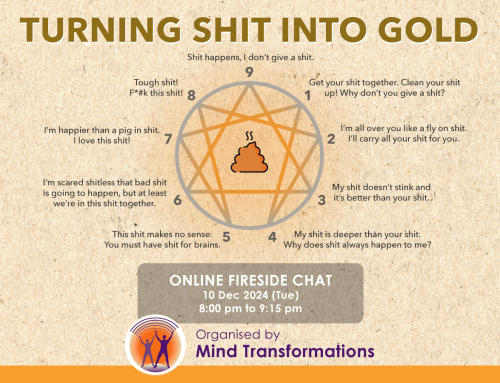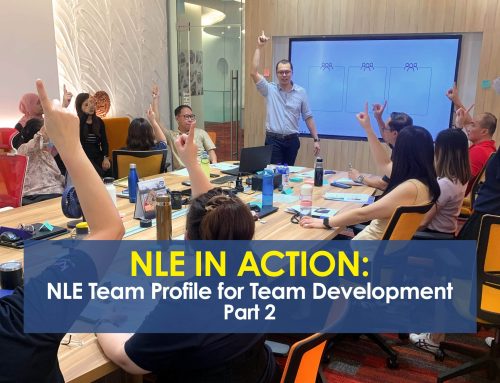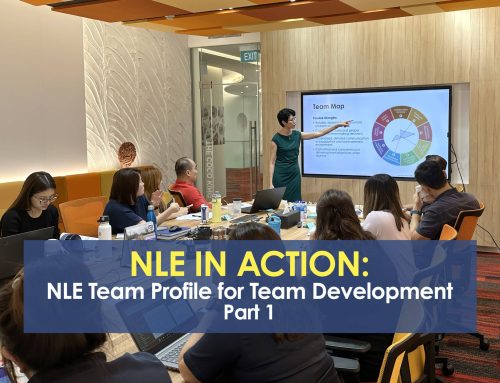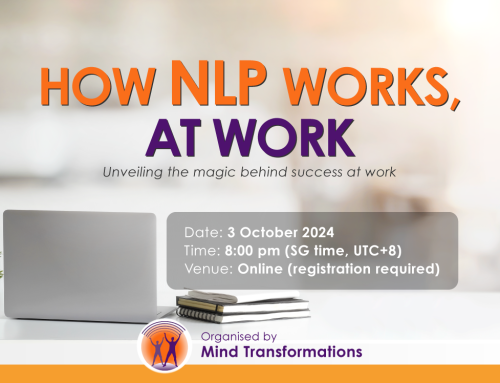Good leaders and managers know how to listen. But what about deep listening? Deep listening involves being able to understand and influence people on the deeper meaning behind what they are communicating and what they aren't saying.
It requires one to understand implied presuppositions in order to be effective. By learning to develop deep listening skills, leaders can foster trust, synergy, and an empowering culture among co-workers.
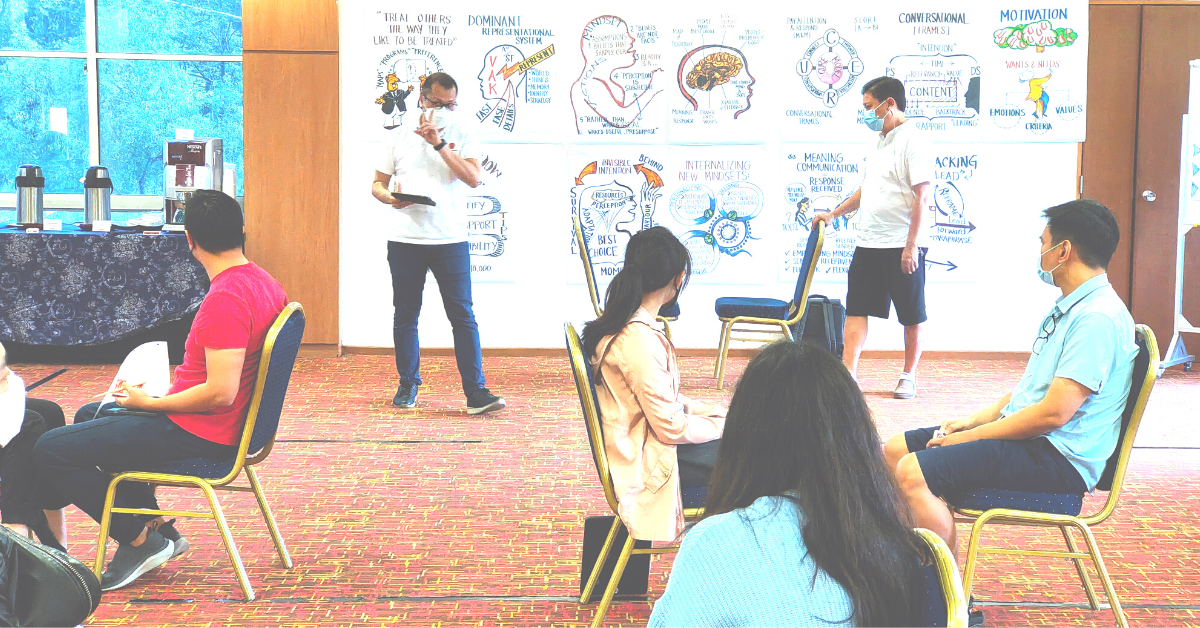
What is Deep Listening?
Deep listening is the ability to engage beyond the conceptual level with someone else's communication.
It goes beyond simply understanding what a person says; instead it involves integrating multiple sensory sources in order to gain insight into the deeper connotations of their words.
This kind of communication involves mental, emotional, physical and social intelligence in order to comprehend any implied meanings that may exist beyond our knowledge, expectations, or acceptance levels.
When done well, deep listening has several benefits for organisations.
For instance, it can help leaders better understand their team members' perspectives and opinions – giving them insights into how different members think, operate and communicate about certain topics before making decisions.
Additionally, it builds synergy among team members; as team members feel like their views are valued, it strengthens the relationships amongst everyone involved in the organisation.
Ultimately, deep listening fosters an atmosphere of empowerment and psychological safety amongst team members as each person is acknowledged and respected for the value they contribute. This allows individuals to reach their fullest potential in a supportive environment.
Examples of Implied Presuppositions Behind Someone’s Message
While conversations typically involve two parties exchanging information, much more can be gleaned from one’s statements beyond explicit details – including some implications that may not have been made clear at first glance such as feelings & priorities etc…
Oftentimes, a great deal remains unsaid; so it is essential that we are attentive and look for the implicit message which could provide us with more profound insights into interaction or dialogue—in conjunction with cultivating our abilities of observation, questioning skills and discernment.
Here are 10 examples of this type of hidden meaning within verbal communication:
- 1“I'm looking forward...” - In addition to wanting something specific from whoever they're talking to, this statement implies that whatever action is expected should be taken soon enough if desired results/outcomes are aimed for, otherwise acceptable alternatives will need to be sought out.
- 2“That sounds great..." - Though seemingly positive, this expression may conceal other underlying thoughts such as potential scepticism/doubt regarding the feasibility or concern about repercussions if goals set forth aren't reached due to unforeseen circumstances etc…
- 3“Let's get started...” - Aside from its plain surface meaning, this phrase could indicate impatience energy/enthusiasm but also serve as signifier of urgency & unwavering commitment despite any obstacles that might arise along the way.
- 4“I think we should...” - While this could signify agreement with a plan/idea, it may also reflect underlying reservations about the effectiveness of the proposed action or lack thereof.
- 5“This is important to me…” - This sentence conveys more than just priority being placed upon something as well; it can highlight both urgency as well as sense of ownership on the speaker's part over whatever is being discussed.
- 6“We need to be careful...” - In addition to showing a cautionary attitude, this statement could indicate an acknowledgment of risks involved & desire for a thorough evaluation before proceeding further.
- 7"How do you feel about that?" - Asking this type of question allows one to gain insight into the emotional state of the speaker, as well as their thoughts & opinions on a particular subject matter.
- 8“Maybe we should consider…” - This could mean the speaker is open to other possibilities or that they are uncertain about the feasibility of the current course of action.
- 9“Let's move forward...” - This phrase shows commitment from all parties but may also be hinting at the need for swiftness/swift actions when it comes to accomplishing set goals.
- 10"I don't know..." - Though this could signify a lack of knowledge, it can also reflect genuine confusion, overload or apprehension due to circumstances being discussed and/or implications thereof.
How To Develop Deep Listening Skills

Developing these skills takes practice but there are some steps that you can take right away:
1) Be attuned & being present:
Being attuned to a conversation means more than understanding the words being said; it means understanding the underlying feelings, sentiments, and meanings that are communicated through a speaker's tone of voice and body language.
Being present in a conversation as a deep listener requires that you approach every person you are engaged with as if they had something interesting to say, set aside potential distractions, and ensure that your response is appropriate to what is discussed.
Along with paying close attention verbally, use nonverbal cues such as leaning forward, adjusting your rhythm and intensity of engagement and using appropriate facial expressions together with eye contact to show empathy and respect during conversations with others.
Even small things like adjusting your posture and gestures can communicate thoughtfulness & care which encourages people to share more information than if their words were met by stony silence or lack of acknowledgement (even if you don't agree).
By actively listening to the subtle clues in the speaker's delivery and showing that someone is heard through both their spoken words and underlying emotions, an effective deep listener can make an impactful connection with others.
2) Start with a neutral position:
When engaging in deeper conversations with others, especially when discussing sensitive topics, try not to offer solutions too quickly or make assumptions based on experience – instead strive towards neutrality whenever possible so that all parties can openly express themselves without fear of judgement from either side. Working towards neutrality allows for open dialogue rather than short-term solutions which can often be limiting.
3) Ask open-ended questions to help clarify, expand possibilities and empower people's worldviews:
Asking deeper questions about the speaker's thoughts and feelings not only encourages them to share more but also helps to develop mutual trust. To do this effectively, try to focus on asking open-ended rather than closed-ended questions which allow for longer answers with greater depth, especially in clarifying hidden expectations and unspoken meanings.
4) Respond at a higher value and purpose than to react to people's behaviour:
We can choose how we respond to each other's behaviour.
Instead of reacting purely on our impulses & instinctive habits, we can make a conscious decision to rise above and take the high ground.
Responding at a higher value and purpose means considering a wider and deeper impact of all perspectives, withholding quick judgements in favour of understanding, and focusing on what can be improved going forward.
This approach not only promotes better understanding between individuals but also maintains a more ecological engagement as a whole.
When acting with intention and gracious power, responding from a place of value and purpose can get remarkable results!
By carefully listening out for these types of implied presuppositions in conversations, leaders can gain valuable insight into the underlying sentiments of those they're engaging with.
Being aware of these hidden messages enables one to better understand and provide effective guidance in areas where it's most needed.
With this kind of deep listening, trust can be cultivated within teams as well as an empowering culture that encourages collaboration and synergy towards achieving shared goals.
Listen Deeper for Greater Influence
Sharpen your observational, questioning and interpretation abilities – leading to stronger employee engagements, improved teamwork and more effective decision making.
Apply for a Complimentary 1:1 Course & Development Consultation to find out more!



